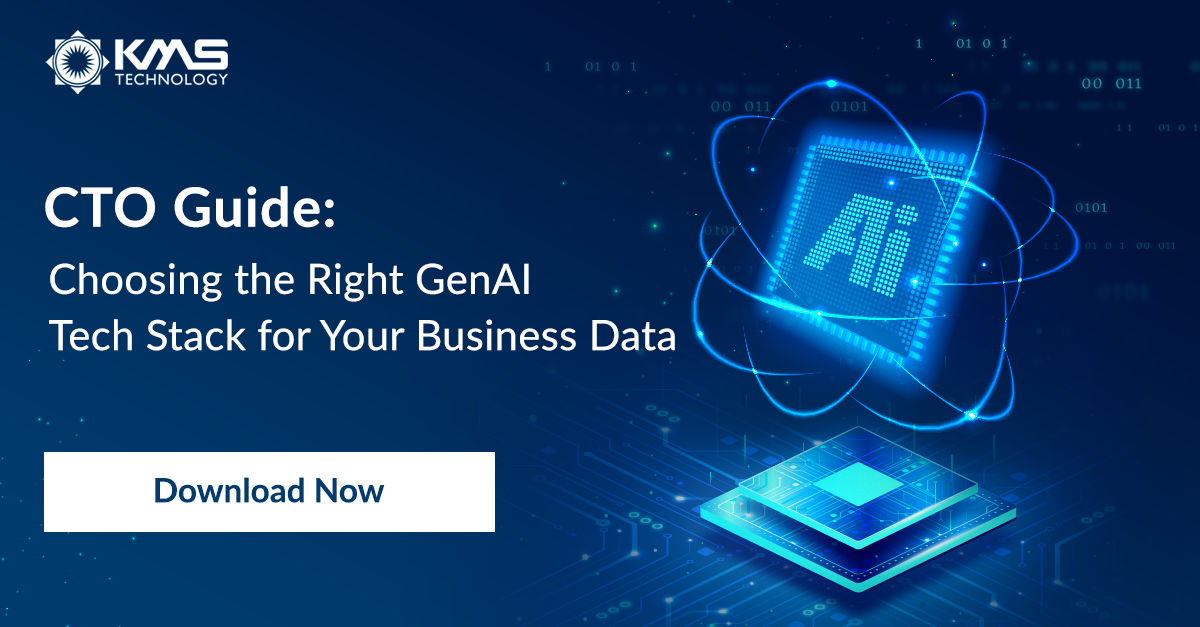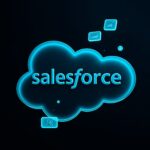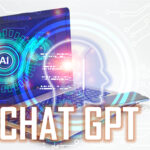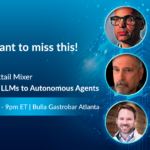Generative AI Resource Roundup #6
Generative AI continues to impact the workforce as teams wrangle with value creation, enhanced productivity, and cost savings. Will generative AI expand beyond select use cases to become a more all-encompassing tool?
Check out these top articles to learn more.

Generative AI and the future of work in America | McKinsey
This comprehensive report investigates the future of work in America from the pandemic era to the more recent accelerated development of generative AI: Which jobs will be in demand? Which ones are shrinking? And which ones could be hardest to fill?
The accelerated development of generative AI, with its advanced natural language capabilities, has extended the possibilities for automation to a much wider set of occupations.
Amid this disruption, workers changed jobs at a remarkable pace—and a subset made bigger leaps and moved into entirely different occupations. Some 8.6 million occupational shifts took place from 2019 through 2022. Now even more change is in store. McKinsey expects an additional 12 million occupational shifts by 2030. The total number of transitions through 2030 could be 25 percent higher than we projected a little over two years ago
Nvidia Revenue Doubles on Demand for A.I. Chips, and Could Go Higher | The New York Times
Nvidia said heavy demand from cloud computing services and other customers for chips to power A.I. systems caused revenue for its second quarter, which ended in July, to jump 101 percent from a year earlier, to $13.5 billion, while profit surged more than ninefold to nearly $6.2 billion.
Nvidia projected third-quarter sales of $16 billion, nearly triple the level a year ago and $3.7 billion more than analysts’ average expectations of around $12.3 billion.
Microsoft and Epic expand AI collaboration to accelerate generative AI’s impact in healthcare, addressing the industry’s most pressing needs | Microsoft
Microsoft’s large-scale cloud and AI technologies combined with Epic’s deep understanding of the healthcare industry and clinical workflows together announcing the expansion of their strategic initiative to bring AI to healthcare at scale, integrating conversational, ambient and generative AI technologies across the Epic electronic health record (EHR) ecosystem.
Epicl showcased many of these new capabilities that build on our Azure OpenAI Service and Nuance DAX Express solutions at its annual Users Group Meeting, including:
- Enhancing clinician productivity with note summarization: The solutions will help support faster documentation through suggested text and rapid review with in-context summaries.
- Enhancing clinician productivity with embedded ambient clinical documentation: Leveraging Nuance’s Dragon Ambient eXperience (DAX) technology, which is already deployed with hundreds of Epic customers and currently supporting thousands of physicians, Epic showcase this DAX Express AI technology embedded into the native Epic Hyperdrive platform and Haiku mobile application, further enhancing a seamless workflow experience for users.
- Driving administrative efficiencies through reduction in manual, labor intensive processes: AI-powered solution that provides medical coding staff with suggestions based on clinical documentation in the EHR to improve accuracy and streamline the entire coding and billing processes.
- Advancing medicine for better patient outcomes: Delivering generative AI exploration for an initial set of users via SlicerDicer to fill gaps in clinical evidence using real-world data and to study rare diseases and more.
Enhancing value delivery: The impact of generative AI in engineering | The Economic Times
Previously, engineers were required to meticulously consider the syntax and intricacies of different programming languages such as Java, JavaScript, or Python. However, with the advent of GenAI coding tools, these time-consuming tasks have been significantly streamlined. Rather than getting bogged down by syntax, engineers now enjoy the time and flexibility to shift their focus towards higher-level thinking, conceptualising innovative solutions and identifying efficient strategies that deliver value.
Beyond programming languages, engineers will benefit from tapping into GenAI tools to tailor solutions according to their customer’s preferences and interests. Engineers who seize this opportunity will have a profound impact through their work, leveraging Generative AI tools and refining idea-centric engineering.
Meta Launches AI Coding Software to Compete With OpenAI | Bloomberg
The tool introduced Thursday, called Code Llama, uses generative AI to help developers work faster by suggesting lines of software code. The model is open source and available for commercial use.
In the same way, Code Llama will make it easier for companies to build AI coding tools without buying those products from competitors like Microsoft’s GitHub Copilot, which is powered by OpenAI.
For those interested in diving deeper into the world of AI, including the latest developments and how they impact various industries, our Artificial Intelligence blog category is the place to be. From in-depth recaps of industry webinars to the latest trends and insights, our content offers valuable resources for anyone keen on understanding and leveraging AI technologies.
The Generative AI TLDR

“It is important to acknowledge that GenAI tools serve as aids to assist with various aspects of engineering, like coding and testing. However, these tools are not the be-all and end-all of engineering solutions. Human expertise will still have to play a pivotal role in refining AI-generated output. This collaboration will empower businesses to deliver personalised and relevant solutions, fostering deeper connections and enhancing overall satisfaction.”
- Enhancing Value Delivery: The Impact of GenAI on Engineering | Economic Times
That’s all for this week! Stay tuned for more roundups on a biweekly basis.








